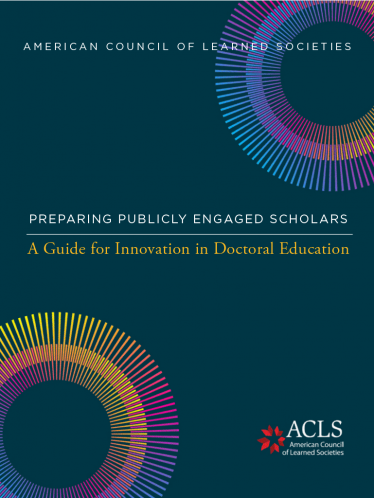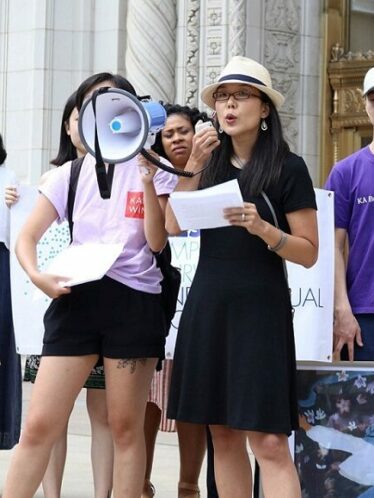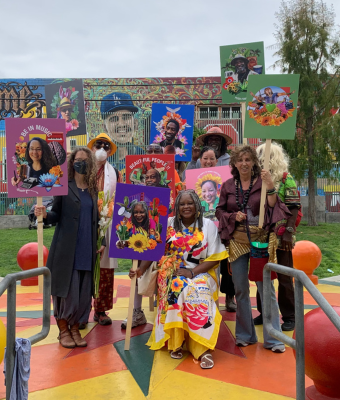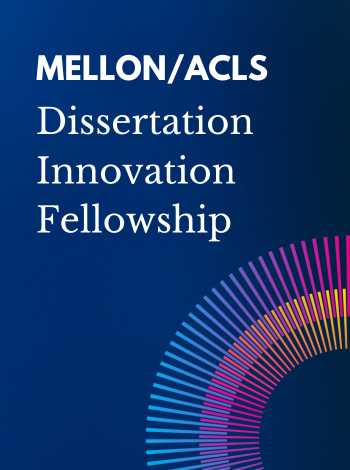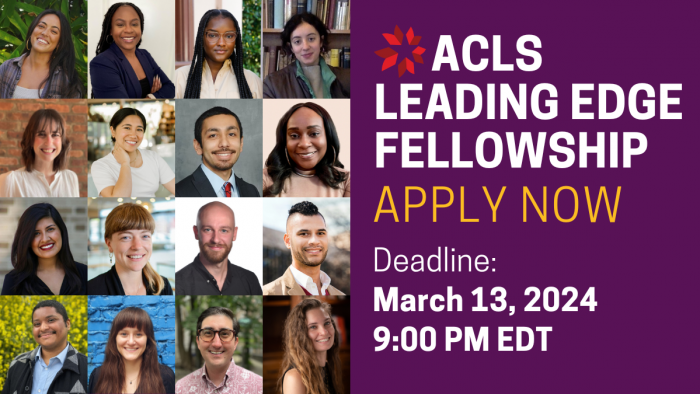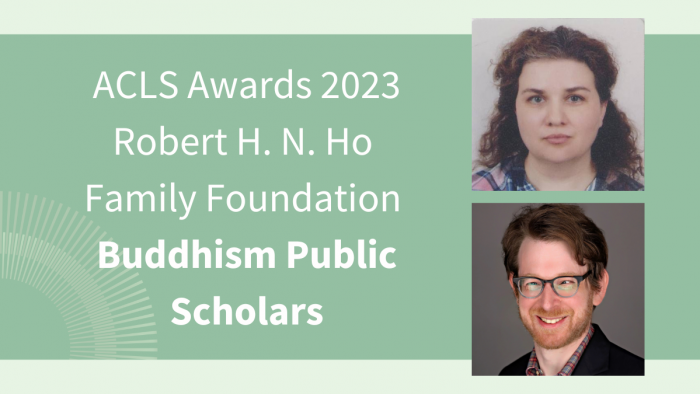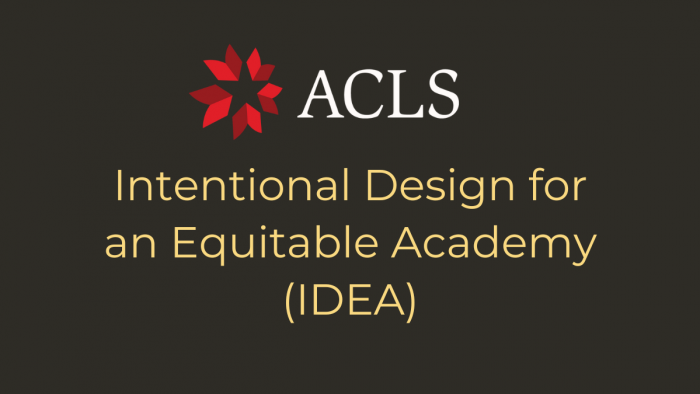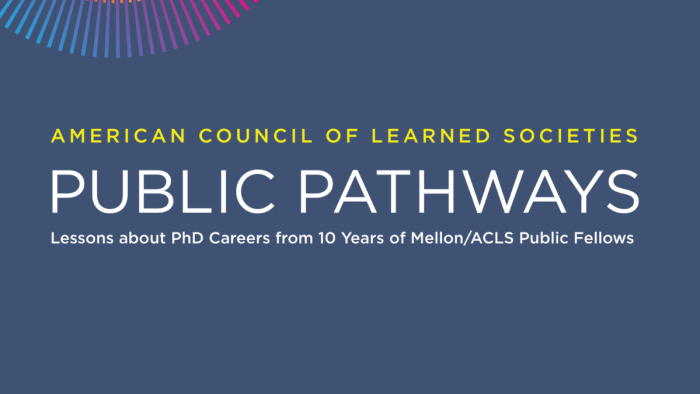
Preparing Publicly Engaged Scholars
Supporting publicly engaged work in the humanities and interpretive social sciences at the doctoral level is critical to building an academy that responds to the needs of society and academia today. Preparing Publicly Engaged Scholars: A Guide to Innovation in Doctoral Education draws on the experiences of Mellon/ACLS Scholars and Society Fellows and graduate students to offer insights and recommendations for publicly engaged doctoral education. The guide explores a range of curricular and program innovations, from introducing graduate students to career pathways beyond the academy, to collaborative research with community partners, to incorporating land-based pedagogy in connecting and supporting Indigenous students. It aims to:
- demonstrate the value of publicly engaged work;
- give faculty, department chairs, administrators, and students concrete examples of how this work can be supported for graduate students; and
- offer recommendations for framing and sustaining ethical engagements between student-researchers, supporting faculty, and community members.
This report was made possible by a grant from the Mellon Foundation.
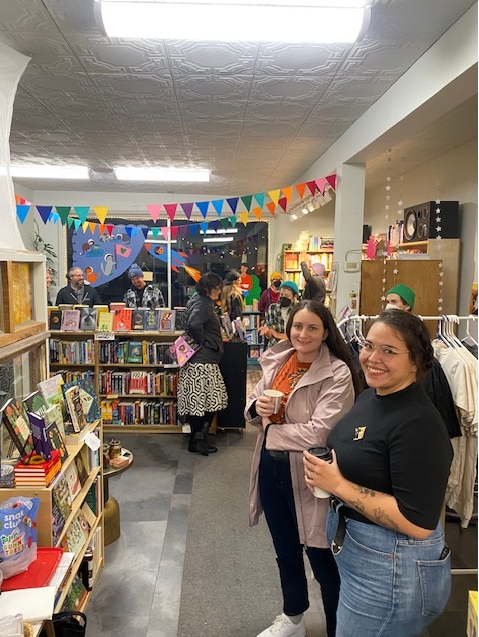

A crucial first step, then, is for universities to recognize and support identities beyond that of solely “student,” “faculty member,” or “scholar,” and to instead honor the different roles we all play within multiple communities. Indeed, people in the academy are also—and already—members of communities, and community members are also—and already—experts producing knowledge.


